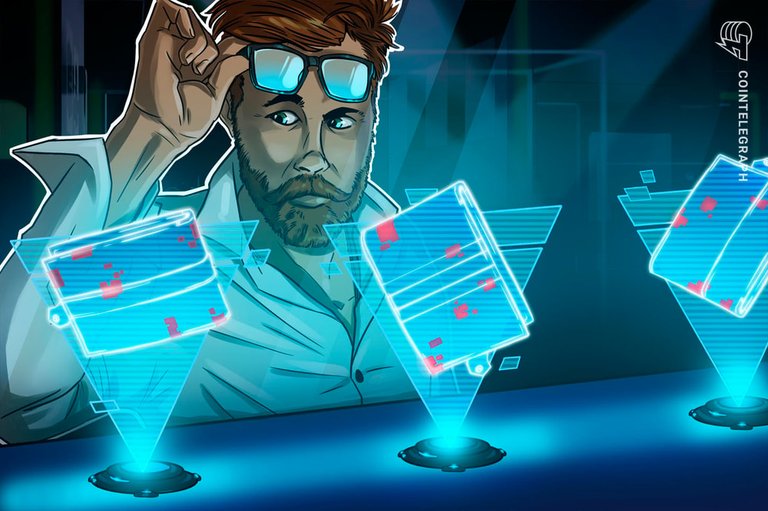Decentralized AI agents and gas payer protocols are integral to solving decentralized payments
One of the things in crypto that needs a major revamp is payments, and more specifically decentralized payments solutions. At the time, I don't think I'd be wrong to say that we don't yet have a solution that works perfectly and is suitable for global usage even if multichain transactions are involved.
Generally, when decentralized solutions fail to impress, centralized options often do the trick, but when it comes to payments, even the centralized crypto payments solutions that exist currently have major design limitations and software flaws. I've personally used Bitpay a couple of times and it's hell, one day you can pay with ETH on Arbitrum, next day you can't and need to move assets to an exchange to swap to a different crypto and try again.
I imagine that a payment solution should have an inbuilt swap function for multi-chain swaps, even at the point of payments to eliminate the friction of canceling a payment process and having to move to a centralized exchange and potentially pay high fees and also kill time just to perform manual conversions(swaps) or trades.
The road to mass crypto adoption is met with many obstacles and one of those obstacles is how incredibly poor the payment solutions are. There's not a single payment solution that enables truly flexible payments that even a novice with little technical crypto knowledge can navigate, yet, we are an industry with almost $3 trillion in combined market capitalization.
There's about 161 layer 1 blockchains worth a combined $557.95 billion and 48 active layer 2 blockchains with native assets worth over $9.49 billion according to data from coinmarketcap.
With this, we are essentially dealing with 209 blockchain networks which all have native governance tokens that are also used for gas fee payments. When building a payment solution, this is the one of the very first things that should be in mind.
Having this much blockchains means that there's bound to be a vast array of users with different token currencies that they're comfortable transacting in. This realities begs a payment solution that can be inclusive and flexible enough for any ecosystem participants to leverage.
Decentralized AI Agents in decentralized payments
Blockchain networks are bound to grow larger in numbers overtime, as a result, having solutions that involves the building of interoperability for these chains is generally not practical.
The cost of building secure bridges that allow value to move across these networks may far outweigh the benefits, essentially discouraging any effort to deploy such systems.
That said, a more cost-effective approach to tackle the flaws of growing blockchain networks making it hard for businesses to maintain support for its user base is leveraging AI agents for liquidity and ecosystem analysis that leads to the autonomous creation and handling of thousands of onchain accounts.
There's already a lot of evidence on what AI agents can do with access to chain wallets. By designing agents around being able to run analysis on liquidity and ecosystem engagement, businesses can afford to remain open to a much larger number of blockchain users.
The system would be quite simple. Rather than rely on bridges to port value over from chains to chains, AI agents can simply analyze the strengths of specific networks and the availability of functional markets with reasonable liquidities.
It's all about setting a threshold on liquidity and ecosystem engagement that allows these agents to autonomously decide which blockchain users can proceed to pay with their native chain tokens or assets at any given time.
Gas Payer Protocols for decentralized paymentss
This is something I imagine to be built as a unichain solution where the protocol essentially cuts around numerous blockchain networks. This means that it will be an incentivized side-protocol to all blockchains.
Think about a scenero where every functional chain has gas payers offering to cover the cost of TX for individuals who don't have the necessary tokens needed for gas payments.
Understanding that it will not be uncommon for users to end up in situations where they do not have native tokens needed for gas payments, a gas payer protocol that is integrable in each payment solution makes it easy for businesses to be able to cover gas fees cost for their users even without them knowing how it's done as the fees are passed onto their total payments costs and charged to their preferred currency for payments in the process.
Combining AI agents and gas payer protocols means that businesses can efficiently support and accept payments across numerous blockchain networks flexibly even if said chains were deployed yesterday. This is a match I speculate to be integral to scaling decentralized payments as it is more secure to relying on bridges which are vulnerable to smart contracts exploitations and subjects businesses to high risks exposure for simply trying to be open and supportive of a wide array of platforms.
A more practical approach is adopting a system that allows said businesses to accept payments at where they are made from and can be moved out of autonomously post-payment execution.

